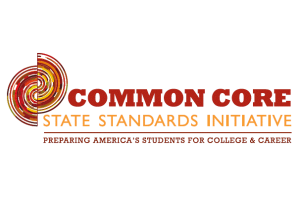Big name Republicans giving their full-throated support to the Obama Administration’s Common Core education reforms don’t dwell too much on what they are. They don’t look good in close-up.

“Common Core State Standards (CCSS) in math were developed to address the criticism that national math curriculums were ‘a mile wide and an inch deep,’” Sarah Perry writes in a Family Research Council (FRC) issue brief. “The drafters sought to develop more focus and coherence through the standards, with the belief that those students who can explain mathematical rules would have a better chance at succeeding in less familiar mathematical tasks.”
They picked an odd way of doing it. “The CCSS cover fewer topics than those covered by traditional math materials, and eliminate topics such as pre-calculus and most aspects of trigonometry,” Perry relates. “CCSS also eliminate concepts traditionally associated with algebra II and geometry, such as complex numbers, vectors, polynomials, logarithms, logarithmic and exponential functions, the Binomial Theorem, composite and inverse functions, matrices, ellipses, hyperbolae, the derivation of area of general triangles, and the concept of ‘pi.’”
Moreover, where yesterday’s standards are actually better than today’s, guess what’s being jettisoned? “Trevor Packer, Senior Vice President at the College Board and in charge of its Advanced Placement (AP) program, speaking at the 2013 annual conference of School Superintendents Association (AASA), relatedly noted that the Common Core is less rigorous than what high schools routinely teach today and, consequently, the College Board is considering eliminating AP calculus,” Perry reports.
The crowning irony is that the goal of Common Core—preparing students for college, careers and international competition—is more likely to be out of reach with the CCSS in place. “Jonathan Goodman, a professor of mathematics at New York University has stated that the ‘college-ready’ standards of the CCSS fall below the admission requirements of most 4-year state colleges, and that the CCSS ‘[have] significantly lower expectations with respect to algebra and geometry than the published standards of other countries,’” Perry notes. “Illustratively, the CCSS defer the teaching of algebra from 8th grade to high school, thereby reversing the 2008 recommendations of the National Mathematics Advisory Panel, and putting the U.S. one to two years behind the math practices of higher performing nations.”
“The standards also make puzzling omissions of geometry basics, instead relying on an experimental approach that uses the basis of rigid motions and is internationally untested. All this follows on the heels of a dogmatic opposition to teaching computation skills until the later elementary grades. William Schmidt of Michigan State, has found that ‘internationally, the focus of eighth grade for all students in virtually all of the TIMSS [Trends in International Mathematics and Science Study] countries-except the United States-is algebra and geometry.’”










